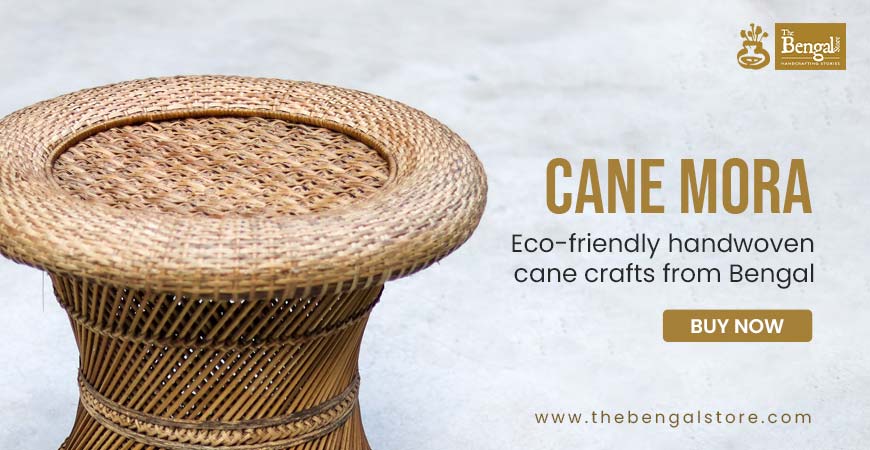Eye of Horus: A vignette of Egypt in Kolkata. An Exclusive GB interview
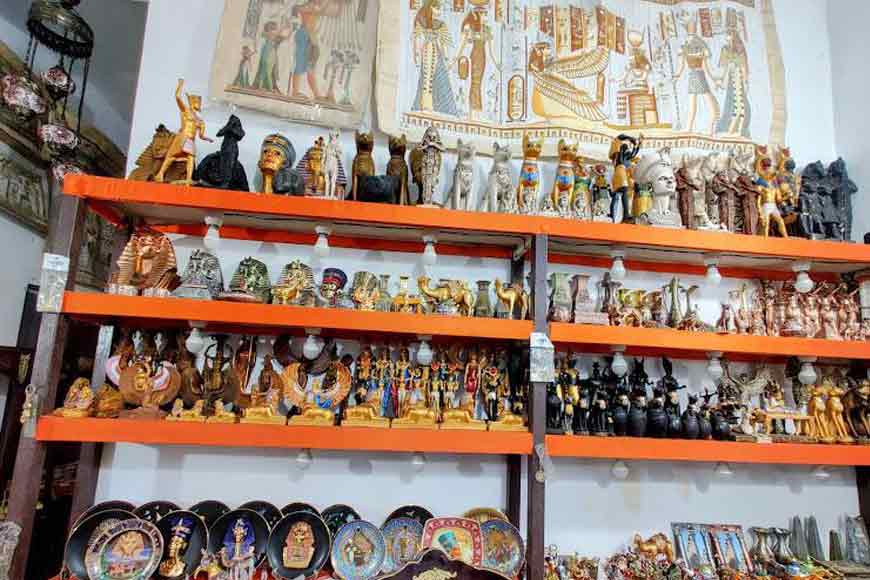
The ever-expanding city of Kolkata loves to stop commuters in their tracks by springing a surprise now and then. As you walk along the footpath of Rashbehari Connector from Bosepukur Shitala Mandir, you are bound to spot a signboard that reads ‘Eye of Horus.’ You are bound to be flabbergasted as you desperately try to recollect and associate the strange name with something unfamiliar yet not fully remote. As you rake your brains, you are transported to a distant land from the past: Egypt! No other civilization has so captured the imagination of scholars and laypeople alike as ancient Egypt. It is a land of mysteries. Everything about this ancient civilization is shrouded in mystery right from its origin to its religion and its monumental architecture: colossal temples, pyramids, and the enormous Sphinx. The ‘Eye of Horus’ is a concept and symbol in ancient Egyptian religion that represents well-being, healing, and protection. But what is it doing here, in Kasba in South Kolkata?
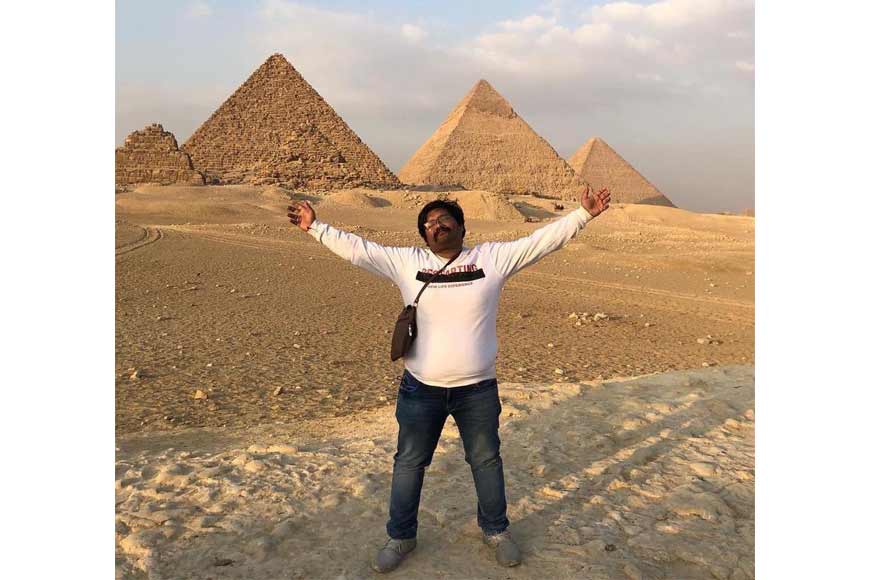
One needs to step inside to find out what’s going on inside. Once inside, you will be greeted warmly by Raunak Dutta, a young man in his early 30s, who is the owner and CEO of this cozy curio shop. Sometimes, there are shops that you just want to look at and admire for a moment. ‘Eye of Horus’ is one of them and you will not be disappointed when you discover a mini-Egypt, represented by objects both ancient and contemporary, tastefully displayed. A treasure trove for curio connoisseurs, the shop has rare and unusual objects to wow you, and they're all handcrafted. The shop has products from different regions of Egypt like, papyrus imported from Cairo or sandstone statuettes or lapis lazuli stones, and carvings brought from the famous ancient port town of Alexandria. The shop also sells furniture, show pieces, apparel, jewellery, and accessories such as rings, earrings, pendants and bangles, and other household articles, all imported from Egypt. The soft illumination inside the curio shop transports the beholder to an ancient civilization from Northeast Africa that flourished around 3,100 BCE.
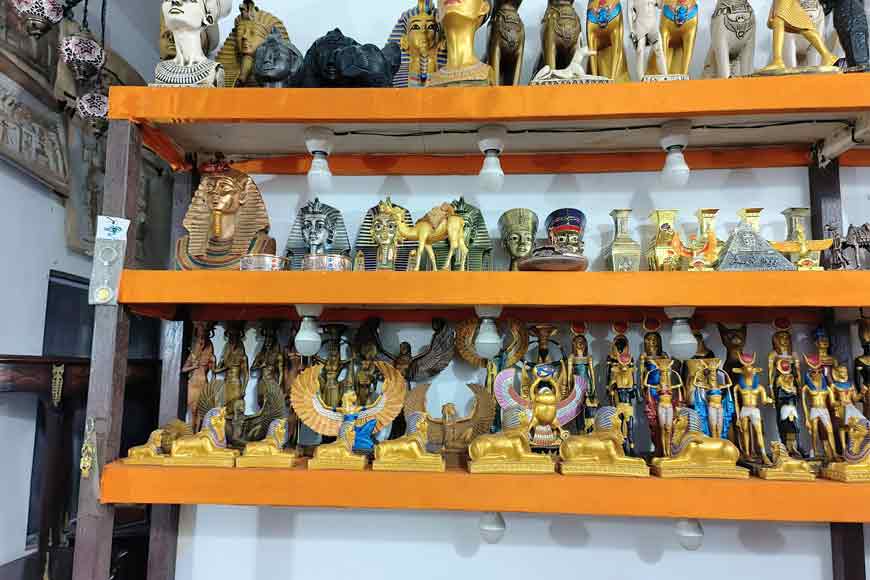
At the helm of this Egyptian empire rules Raunak Dutta, a youth whose passion fuelled his ambition to give up a stable job and follow his dream. A B.Tech engineer in computer science from Techno India, Raunak was offered a job in a renowned IT firm, and like all young lads fresh out of college, he took it up. Like most youngsters, he too was an idealistic youth who thought his job would offer him opportunities to explore and discover newer aspects in his field of work. But alas! His dreams were shattered. In no time, he says, “I was getting a handsome salary no doubt, but I was basically doing a clerk’s job on the desk. It was all very frustrating and I wanted to leave.” After a year-and-a-half of a harrowing experience, Raunak decided to put in his papers and start afresh.
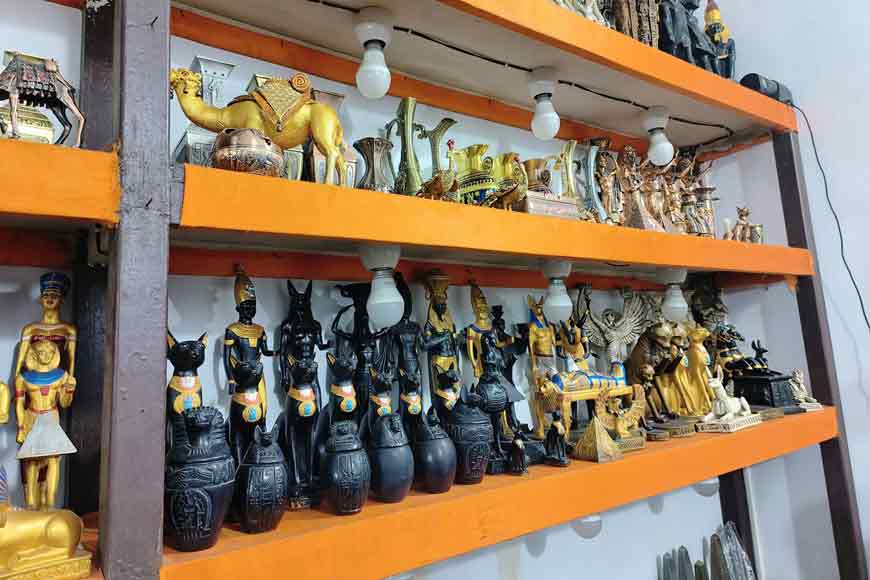
“My family was very supportive of my decision and it was because of them that I could pursue my long-cherished dream and start my journey as an entrepreneur,” says Raunak. Nobody in his family has anything to do with business and trading. His father was a bureaucrat who retired from service in 2014, but when he announced his wish to change track, both his parents readily agreed.
A computer engineer having no prior experience in the complex world of export-import and setting up a shop was a big risk but Raunak was willing to step out of his comfort zone and Egypt was his calling. “When I was in Class IV or V, we were taught world history and I was fascinated by Egyptian history. It was during this time that the Hollywood blockbuster, The Mummy (1999) was released.
My parents took me to the cinema hall to watch the movie. This further triggered my obsession. I started reading extensively on ancient Egyptian civilization, Egyptian mythology which was the core belief system and underlying form of ancient Egyptian culture, pyramids, tombs, hieroglyphics, and the pharaohs…. My academic explorations led to an enchanting world that I was now keen to visit and explore. With this aim, I headed for Egypt and travelled extensively, spoke to local traders and artisans and when I discussed with them my idea of importing authentic Egyptian products from them and selling them from my outlet in Kolkata, they agreed and encouraged me to embark on this adventure. I then zeroed in on starting a curio shop in Kolkata where I would sell artifacts and other utilitarian items imported from Egypt. Since then, I have been to Egypt many times and each time, I feel as if I am treading on a magical land.”
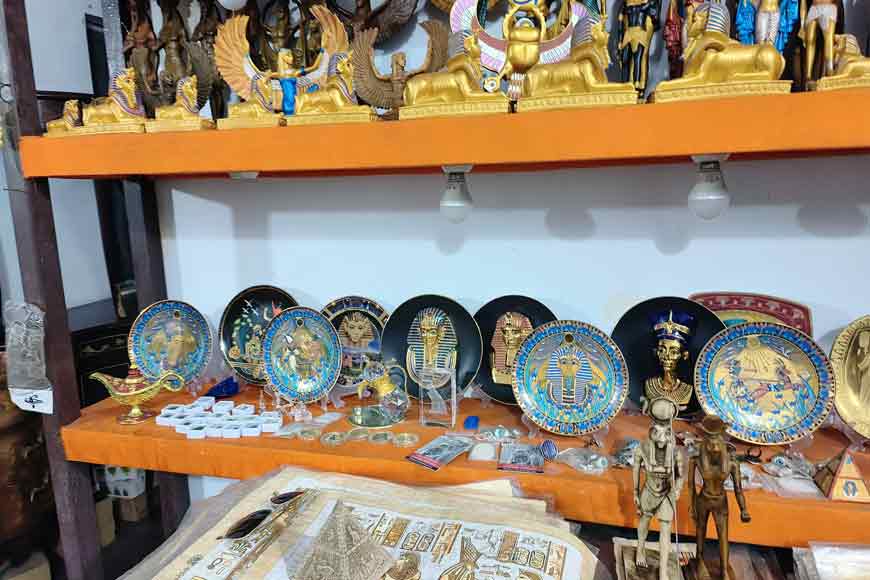
Finally, in April 2017, Raunak set up his shop, Eye of Horus, in Bosepukur, Kasba, as the only shop in India selling exclusively imported products from Egypt. The shop has been a major attraction for niche clientele who are enthusiastic about Egyptian history and mythology and brighten up at the very mention of the Nile River or the Pyramid of Giza or Cleopatra or Tutankhamen. Raunak also sells imported furniture and he gets regular requests from individuals as well as interior designers to import Egyptian furniture for them. His Egyptian cotton Tee-shirts are in great demand among connoisseurs.
Over the years Raunak has been satiating his curiosity and updating his knowledge about the Pharaohs’ land and now is the proud owner of a vast collection of books on ancient Egyptian civilization, some of which are not only rare but are also out of market. Recently, he decided to devote a corner of the shop to stack his enviable collection for enthusiastic readers. These books are not for sale nor can they be hired but any reader can pay a fee of Rs 100/- to sit and read the books of choice in the shop itself. He has plans to expand his ‘empire’ further and intends to start an Egyptian food-themed café in the near future. “After I started my business, everything was going smoothly and business picked up but then the pandemic happened in 2020 and all business ventures went spiraling down. I too, had to go through a bad phase but now, post-Covid the scenario is changing gradually and once again, the market is buoyant and sales are picking up,” says an optimistic Raunak.
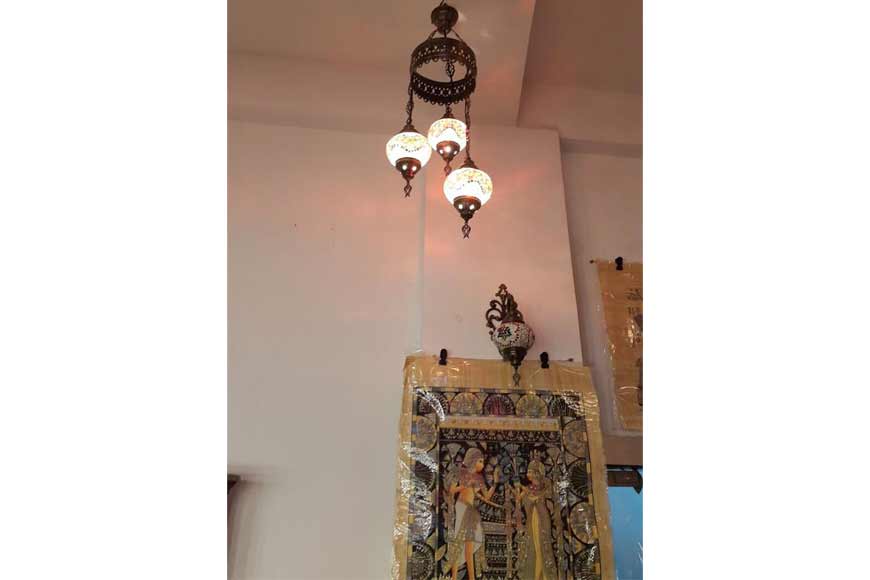
Raunak is a man who is drawn to the past and explores various historical facets through his myriad hobbies. He is an avid postage stamps collector and is a familiar name in the philately circle. He has participated in several well-known state, national and even international philately exhibitions and has been awarded a number of Gold and Silver medals. “This is truly my passion, my hobby if you choose to say so,” says Raunak eagerly. “Both my parents were avid postage stamp collectors and I inherited their collection as well that streak from them. Like most kids, I started collecting stamps when I was very young and my parents encouraged me. In most cases, kids usually give up the hobby as they grow up but I continued collecting postage stamps diligently and over the years, managed to create a sizeable collection. I read journals and books related to philately to keep myself informed about the latest news related to stamp collecting. I have participated extensively in different exhibitions and competitions and won medals. Now I have reached the official level where I am often contacted by various philately associations to conduct classes at the GPO and other venues from time to time for people interested in this field.”
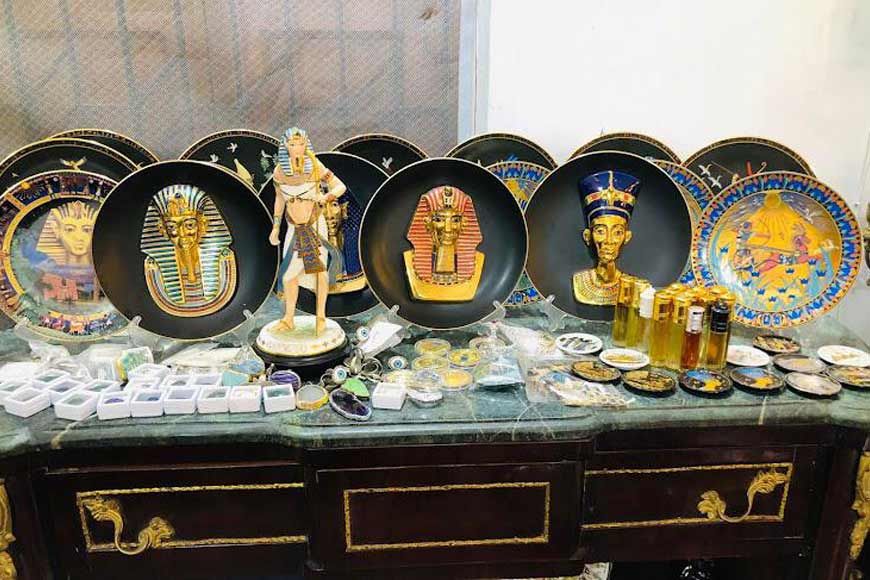
Another lesser-known hobby that Raunak pursues with great eagerness is collecting vintage playing cards including Dashavatara cards. These hand-painted cards depict the 10 primary avatars (incarnations) of Lord Vishnu. “The cards are called Ganjifa and traditionally are circular or rectangular in shape. Ganjifa became popular in India under the Mughal emperors. In his work, the ‘Baburnama’, Babur notes in the year 933H (1527) that he had a pack of Ganjifa cards sent to Shah Hassan. We are usually familiar with the Dashavatara cards of Bankura-Vishnupur, but there are a number of variations found in different parts of the country and chief among them are the Ramayan Ganjifa played in Odisha, Sawantwadi in Maharashtra and Mysore Chad Ganjifa,” explains Raunak. He has extensive knowledge about this ancient card game and has some really rare hand-painted Ganjifa cards from yore. “Collecting playing cards is still not very popular and I do not restrict myself to Dashavatara cards alone. I have been collecting cards which look aesthetically appealing to me,” says this former IT-ian whose heart and soul are steeped in history. He hopes that someday, the Ganjifa cards collection will also catch up with the masses and this will help save not only the traditional art but also the rustic artisans associated with the making of the cards. With these words he signed off, ready to attend to his customers.









